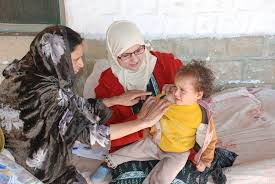Abstract
The World Health Organization recommends Mycobacterium bovis BCG vaccination in areas of high tuberculosis prevalence. BCG’s clinical and immune effects, not necessarily Mycobacterium tuberculosis specific, are unclear. BCG vaccine scarring often is used as a surrogate marker of vaccination or of effective vaccination. We evaluated BCG scarring status in relation to clinical findings and outcome in 700 hospitalized Malawians, of whom 32 had M. tuberculosis bloodstream infections (BSI) (10 of whom had cellular immune studies done) and of whom 48 were infants /=6 months old, scarring was not related to the presence of pulmonary symptoms (35 versus 30%), chronic cough or fever, mortality, or M. tuberculosis BSI. In M. tuberculosis BSI patients, scarring was unrelated to mortality, vital signs, or clinical symptoms but those with scarring had higher proportions of memory and activated T cells and more type 2-skewed cytokine profiles. Infants with either BCG scarring (n = 10) or BCG lesional inflammation (n = 5) had no symptoms of sepsis, but 18 of 33 infants without BCG vaccination lesions did. Those with BCG lesions had localized infections more often than did those without BCG lesions. These infants also had lower median percentages of lymphocytes spontaneously making interleukin-4 (IL-4) or tumor necrosis factor alpha (TNF-alpha) and lower ratios of T cells spontaneously making IL-4 to T cells making IL-6. Thus, we found that, in older patients, BCG vaccine scarring was not associated with M. tuberculosis-specific or nonspecific clinical protection. Those with M. tuberculosis BSI and scarring had immune findings suggesting previous M. tuberculosis antigen exposure and induction of a type 2 cytokine pattern with acute reexposure. It is unlikely that this type 2 pattern would be protective against mycobacteria, which require a type 1 response for effective containment.
Jason J, Archibald LK, Nwanyanwu OC, Kazembe PN, Chatt JA, Norton E, Dobbie H, Jarvis WR
Infect. Immun. 2002 Nov;70(11):6188-95
PMID: 12379697
Jason-BCG-2002-Document_3006971_29105